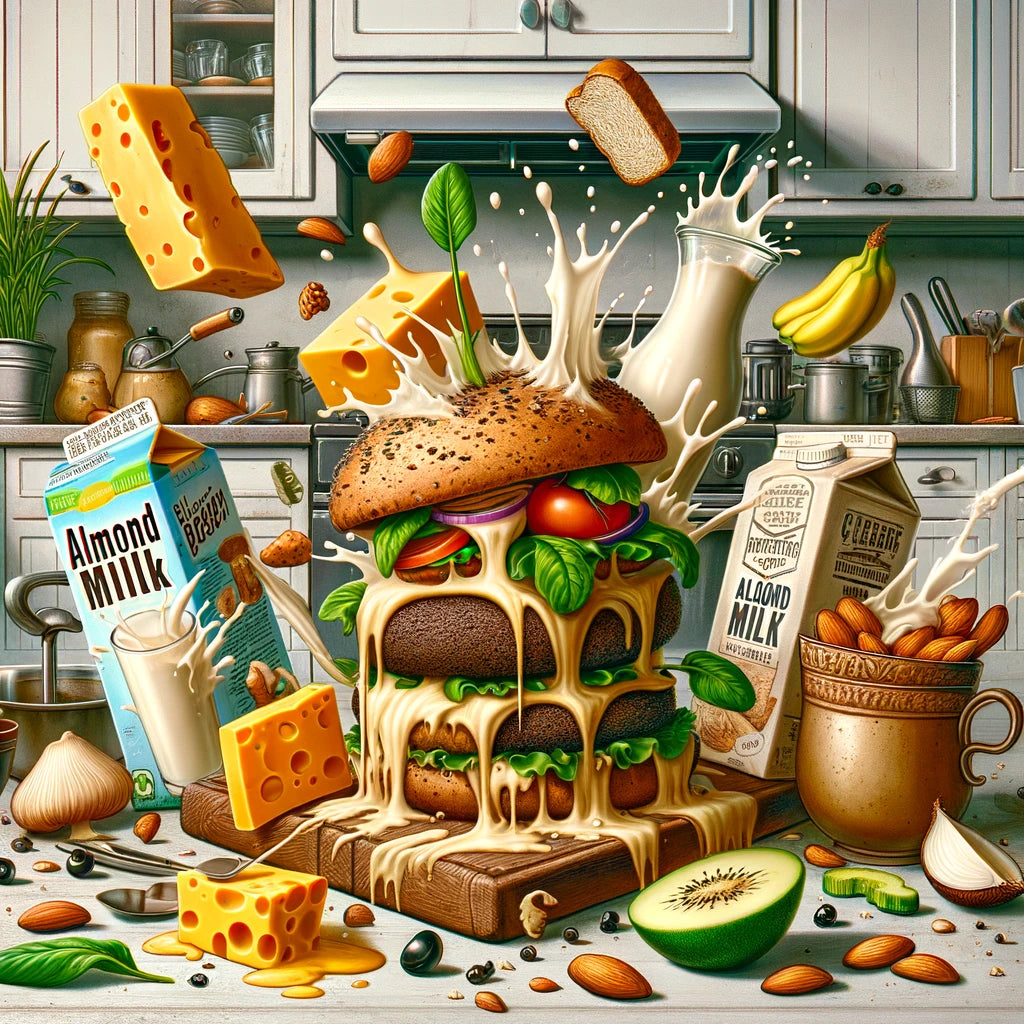Vegan and vegetarian diets are always a hot topic in the health and diet community. In this article I'll discuss some very important things to consider before switching your diet. There are a few myths to dispel as well as some important propaganda to be aware of. Listed below is a brief outline of what i’ll be discussing:
- Protein, Vitamins, Minerals
- Fake Vegan Foods (including vegan cheese and plant-based protein powder)
- What to do if you are an ethical or environmental vegan
Are there such things as high protein vegetarian meals?
A lot of advocates for a vegan and vegetarian diet argue that you can get plenty of protein on a plant based diet. And to their credit, it is certainly possible to eat high protein vegetarian meals. However, it requires eating large amounts of proto foods that aren't necessarily healthy.
Seitan, for example, is generally considered the most protein dense vegan food. It is a meat substitute made from gluten, the main protein in wheat, and contains about 25 grams of protein per 100 calories. Unfortunately, gluten can cause a number of negative health consequences including bloating, inflammation, and dehydration. For a more detailed dive into why you should avoid gluten and other grains, check out this article.

Beyond protein, the nutrient profile of seitan and soy pale in comparison to meat. Seitan, made from vital wheat gluten, provides 8% of the daily value (DV) for iron, 7% DV for phosphorus, 16% DV for selenium, and 42% DV for protein per ounce. Soft tofu, in a 100-gram serving, offers 10% DV for protein, 7% DV for magnesium, 6% DV for phosphorus, and 5% DV for potassium.
Ground beef, on the other hand, presents a more diverse range of nutrients. In a 100-gram serving of ground beef (80% lean, 20% fat), it provides 17.2 grams of protein, 11% DV for iron, 38% DV for zinc, and a remarkable 89% DV for vitamin B12. Additionally, it contains 27% DV for selenium, 26% DV for niacin (Vitamin B3), 19% DV for vitamin B6, and 12% DV for riboflavin (Vitamin B2).
When comparing these foods, seitan and tofu, while rich in certain minerals and proteins, lack significant amounts of other vitamins, particularly B12, B6, niacin, and riboflavin, found abundantly in ground beef. Ground beef's richness in iron, zinc, and selenium is comparable to seitan, but it provides a broader range of essential nutrients crucial for various bodily functions.
While it is true that there is such a thing as a high protein vegetarian meal, it is very hard to eat enough protein while consuming all your necessary minerals without eating too many calories.
Vegan Cheese and Plant-based Protein Powder
As vegan-vegetarian diets become more popular, supermarkets are becoming filled with fake animal products, including fake eggs, fake meat, vegan cheese, and plant-based protein powders. Most of these products are marketed as “healthier” replacements to animal products. This however, couldn't be further from the truth. Not only are the vegan replacement foods nearly devoid of any nutrients, (compare the nutritional labels below) but most vegan cheeses contain loads of inflammatory and artificial ingredients. Humans have been eating meat and animal products for centuries. Assuming the animal products you’re eating are well raised, animal products are excellent for your health.

Plant-based protein powders are another type of supplement that is becoming more popular. Many Plant-based protein powders are artificially created from plant extracts that are not as high in protein in their natural form. Three tablespoons of hemp seeds for example contains 166 calories and 9.5 grams of protein. Hemp protein powders on the other hand contain just 120 calories with 13 grams of protein per serving. While this sounds like a good thing, extracting protein and turning it into a powdered form is certainly not good for your health. Breaking down foods and deriving their extracts removes many of their health benefits and also removes many of the coenzymes that make the food digestible. There is absolutely no reason to eat plant-based protein powders (or animal protein powders) when you could be eating nutritious whole foods that contain more protein and more minerals.
Environmental and Ethical Vegans
Many vegans and vegetarians claim that animal products are terrible for the environment. And it’s true, animal products raised in factory farms are terrible for the environment. But industrial agriculture is just as bad if not worse for the environment. Industrial agriculture leads to deforestation, soil degradation, and water pollution. Pesticides and fertilizers are also terrible for the environment, as they can lead to the destruction of natural habitats and the loss of biodiversity.

Regenerative farming and well raised ruminants on the other hand are great for the environment and soil.
For example, when animals graze, they trample/step on plant leftovers, turning them into thatch which helps create protective layers over the soil. Nutrients that aren't used by the cow’s digestive system are even deposited back into the land which helps further nourish the soil. Regenerative farming improves soil health, which provides essential nutritional needs for plants and livestock. Grazing ruminants are in fact key to a healthy ecosystem. The manure, urine, and saliva from ruminants like cattle and bison fertilize grasslands. With the rise of mono-cropping and other widespread damaging farming practices, ruminants have become even more crucial for creating new topsoil and reversing climate change.
From an ethical standpoint, traditional farming kills millions of animals a year. According to the U.S. Fish and Wildlife Service, “67 million birds die each year from pesticide poisoning in the U.S. and more than 600 million are exposed.” The EPA estimates that “carbofuran (pesticide) alone kills 1 to 2 million birds each year in the United States.”
One cow on the other hand produces over 680 pounds of food. This all equates to over one million calories. Assuming the average American eats 2,000 calories a day, just one cow can feed one person for an entire year and a half.

Well raised animals are extremely sustainable and great for the environment and in some regards more ethical than agricultural farming.
Overall, animals should be a crucial part of everybody’s diet. If you’re vegan or vegetarian for environmental or ethical reasons you should be just as concerned about factory farming as industrial agriculture.
Conclusion
While vegan and vegetarian diets have gained popularity for various ethical and environmental reasons, it's crucial to also examine the nutritional, health, and ecological aspects of these dietary choices. As we have seen, relying solely on plant-based sources like seitan and tofu for protein can lead to nutritional deficiencies, especially in essential vitamins and minerals that are more abundant in animal products like ground beef. Furthermore, the consumption of processed vegan substitutes like vegan cheese and protein powders often leads to the intake of artificial and inflammatory ingredients, contradicting the health benefits these diets aim to provide.
On the environmental front, while the concerns regarding factory farming are valid, the negative impacts of industrial agriculture cannot be overlooked. Regenerative farming practices and responsibly raised ruminants offer a sustainable alternative, contributing positively to soil health and ecosystem balance. Ethically, the choice isn't as straightforward as it seems, considering the collateral damage of traditional farming practices on wildlife.
This article highlights the importance of a balanced approach to diet, where well-sourced animal products play a vital role in both nutrition and environmental sustainability. It calls for a nuanced understanding of food production and consumption, urging vegans, vegetarians, and omnivores alike to make informed choices that consider all facets of health and environmental impact.







